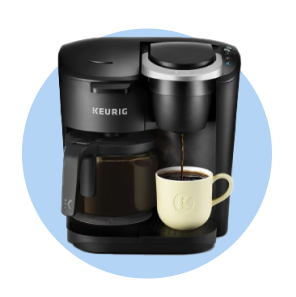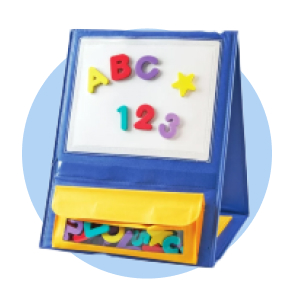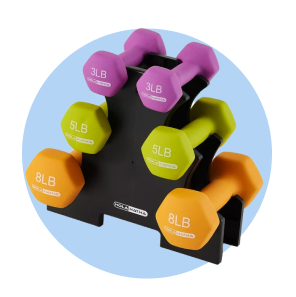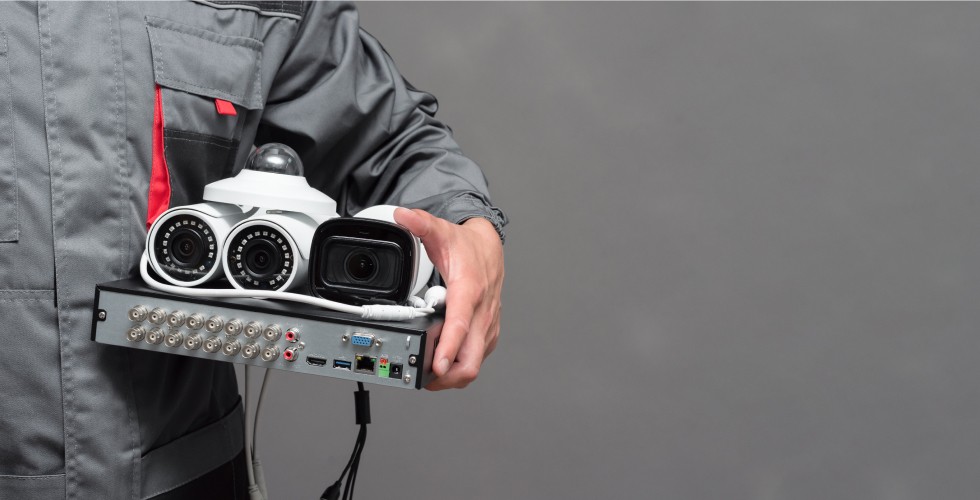
Small Business Security: Helpful Tips to Protect Your Business
Secure your investment
One of the easiest ways to protect your small business is with a small business security system. A security system can help detect intruders, record video of suspicious activity and even protect your employees from health hazards. There are many options to choose from, which can make it a challenge to know what to look for.
We’ve prepared the following guide to help you decide what features are important for your business and what you should consider when selecting a security system.
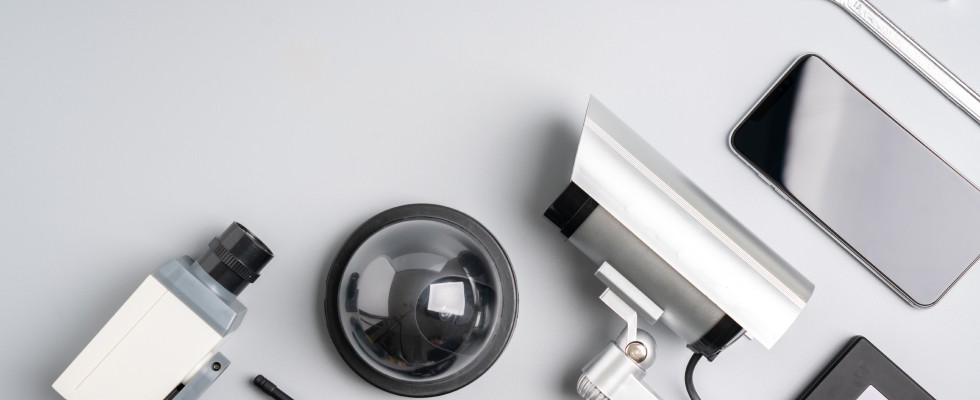
Small business security system features
A small business security system can help you protect your business and employees in a number of ways. From monitoring your premises, securing doors and windows and deterring criminals to helping maintain healthy air quality and sending you mobile alerts no matter where you are, a security system can be an integral part of your business’s operation.
These are some of the best features to look for:
Wireless cameras
A wireless camera can be placed almost anywhere—entryways, loading docks, storerooms, parking lots or any other point of interest. Wireless cameras can also be placed to secure any hard-to-see area, ensuring that your property is being monitored continuously to keep it safe.
Alarms
Alarms protect your business in three ways:
Sound. The loud, sudden and repetitive sound of an alarm can often deter further wrongdoing all by itself.
Alert. Alarms also notify people nearby that something has occurred, at which point they can investigate or contact authorities.
Action. Alarms can be programmed to trigger a secondary action, whether that’s starting a camera recording or making an automatic call to authorities.
Environmental alerts
Keeping your business and employees safe means more than protecting them from criminals. Fire or other environmental hazards pose just as great a risk. With the right equipment, your small business security system can double as a fire and carbon monoxide alarm, alerting the fire department if a fire is detected or sounding the alarm if carbon monoxide levels are unsafe. You can also pair your security system with a fire suppression system.
To learn more about features of small business security systems, read: 7 Features of the Best Small Business Security Systems.
Factors to consider
With multiple features and options to choose from, it can be hard to decide exactly what choices to make when it comes to your small business security system. That’s why we’ve created the following list of factors to consider when making your security decisions.
Safety
The bottom line is that you want your security system to help keep your business and employees safe. This means it’s important to visualize exactly what you are keeping them safe from and how. Cameras, alarms, keycard readers and more all serve specific functions. Decide which safety features you need and make sure your security system has them.
Budget
How much you can afford to spend on security may, in part, be determined by how much you stand to lose. Some estimates suggest insurance premiums are a good place to start when determining the budget for your security system.
Location & size
The size of your business and its physical location may help determine the kind of security system you should have in place. A small business with only one location will likely have different needs than a larger business with multiple locations. Similarly, a retail location, with multiple entry points, will require a different security setup than a small storefront.
For more factors to consider, read Small Business Security Systems: 7 Factors to Consider Before Investing.

Once you’re ready to make a choice, it’s time to decide between the most common security system options:
Wired or wireless
Monitored or unmonitored
Wired or wireless refers to how the system is connected to its individual components. Monitored or unmonitored refers to what kind of response is activated once an alarm is detected.
Wired or wireless?
Wired alarm systems are just that: wired to each individual component. This requires proper setup and can be more expensive than wireless options. The benefits of a wired system are that it tends to be more robust, maintenance-free and efficient.
A wireless system, on the other hand, uses battery-powered sensors and cameras that do not require wires between components. This makes it more flexible, as the components can be installed almost anywhere. It also means setup can be performed in-house to save money. The downside of a wireless system is that it requires regular maintenance to change or charge the batteries.
Monitored or unmonitored?
A monitored alarm system is actively tracked by a security team or an off-site security company. This can provide peace of mind knowing that someone is always looking after you, but monitored systems tend to be more expensive than unmonitored.
An unmonitored system simply shifts responsibility for monitoring to you. You can either assign the task to a team member or program your system to activate automated responses when an alarm is triggered, such as locking doors or setting off an audible alarm.
To learn more about buying a security system, read The Buyer’s Guide to Security Alarm Systems for Small Businesses.
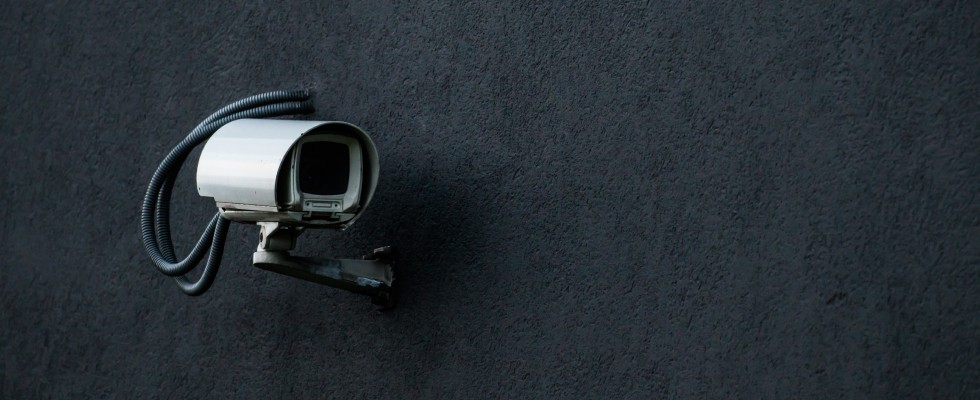
Investing in security cameras
Adding cameras is an instant boost to your small business security. According to research conducted by the University of North Carolina at Charlotte, 60% of burglars consider the presence of cameras when deciding to target a location, and 40% will choose an alternative location if cameras are present.
Here are the factors to consider when purchasing security cameras.
How many cameras do you need?
The number of cameras you need depends on several things. First, there’s your building’s size and layout, as well as which areas receive high traffic. Where do employees and customers congregate, and what are they doing in those areas? Then you have to consider where valuable items are stored, as well as entrance and exit areas. You’ll ideally want camera coverage of all of these hotspots.
How much storage do you need?
Digital storage is easy to overlook when you’re thinking about purchasing security cameras, but you can’t do without it. Each camera records videos, and those videos must be stored somewhere. The amount of storage you will need depends on how many cameras you have, the quality of the videos being recorded, how often the cameras record and how long you plan to keep the footage.
If you want to record around the clock, you’ll need far more storage than if you use cameras equipped with motion sensors that only turn on when they detect something. Depending on your business, you may want to keep video files on hand for anywhere from one week to six months. The more videos you have, and the longer they are, the more storage you’ll need.
You can store your videos on local hard drives or on cloud servers. If you decide to go local, you will require specialized computer equipment and software, but you will have complete control of your footage. If you go with a cloud option, you might save money, but it could increase your risk that your footage will be a part of a security breach.
For more factors to consider when purchasing security cameras, read 4 Factors to Consider Before Investing in Small Business Security Cameras.
Security camera features
The technology of security cameras continues to advance, creating plenty of advanced features for today’s modern security cameras. But which of these features do you actually need? Let’s take a look at some of the most common security camera features.
High video quality
Video quality is one of the most important features of a security camera. After all, if you can’t actually see the details of the videos you’ve recorded, what good are they? Having to squint to see the face of the person who broke into your business—or not being able to identify them at all—would defeat the purpose of the investment.
At a minimum, you will want your video cameras to record at a resolution of 1080p. This will give you the best balance of quality and video size. You can also opt for even better resolutions to capture even more detail, such as 2K or 4K, but be aware that the higher the resolution the greater the expense—both for the camera itself and the storage.
Night vision
Since most burglaries happen at night, using cameras with night vision capabilities will help ensure that if something does occur at your business, you’ll be able to see what it is.
Night vision is a loose term that encompasses several different technologies to aid in capturing video footage in the dark. Some night vision cameras use infrared light to illuminate a dark area. Others use special sensors to enhance the existing light. A third kind uses thermal imaging to sense changes in temperature, like a warm person entering a cool room.
Motion detection
Even with the best security cameras, it may not be possible to record video for every second of every day. Motion detection helps solve this problem by turning on the cameras or registering an alert when it senses motion. This can be someone opening a door, or entering a restricted area.
With motion detection, you are able to see exactly when an event occurred and pay attention to that specific time in a video. This can save considerable time when it comes to monitoring your security footage.
To learn more about security camera features, read The Best Security Cameras for Small Businesses Have These 7 Features.
Enhance your small business security with Walmart Business
At Walmart Business, we know you have a lot of choices to make when it comes to your small business security. That’s why we make it simple to stay on top of your purchasing and supplies.
Sign up for Walmart Business to get access to features like low prices and bulk buys on office must-haves, seamless tax-exempt shopping online and in-store for eligible organizations and multi-user accounts with shared payment options. Already have an account? Upgrade to a Walmart Business+ membership to save over $500/year and enjoy exclusive rewards for your organization.1 Plus enjoy free shipping with no order minimum,2 free delivery from the store with the purchase of $35 or more3 and 2% in Walmart Business Rewards on orders of $250 or more.4
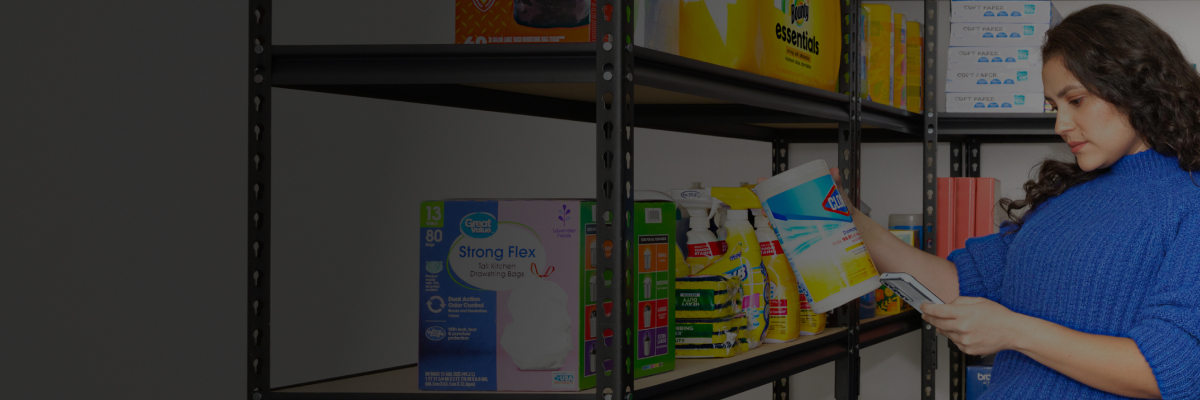
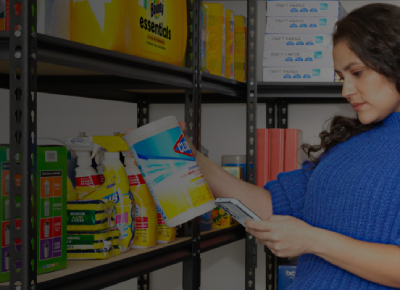
Limited-time offer
Unlock your special promo code
Stay informed on Walmart Business news & get $20 off a $100 purchase!1
1Minimum order of $100. Promo code can be used one time & may not be combined with other offers. Offer not transferable & void where prohibited by law. Customer responsible for all applicable taxes. Offer expires 12/31/2025 at 11:59pm PT. Further restrictions apply. See terms at checkout for details. Promo code offers available in limited quantities. While supplies last.
1 Savings based on 1 free $35+ delivery order vs. $9.95 fee and 1 free shipping order under $35 vs. $6.99 fee biweekly, plus 2% Walmart Business Rewards on monthly order >$250 (average value of $400).
2 Excludes most Marketplace items, freight and certain location surcharges.
3 Restrictions apply.
4 Rewards can only be used toward future purchases on Walmart Business. Additional terms apply.
Exciting news awaits
Hear firsthand about new products, features & promotions.
By clicking submit, you agree to receive emails about Walmart Business and acknowledge you have read and agreed to our Terms of use and Privacy Policy.





